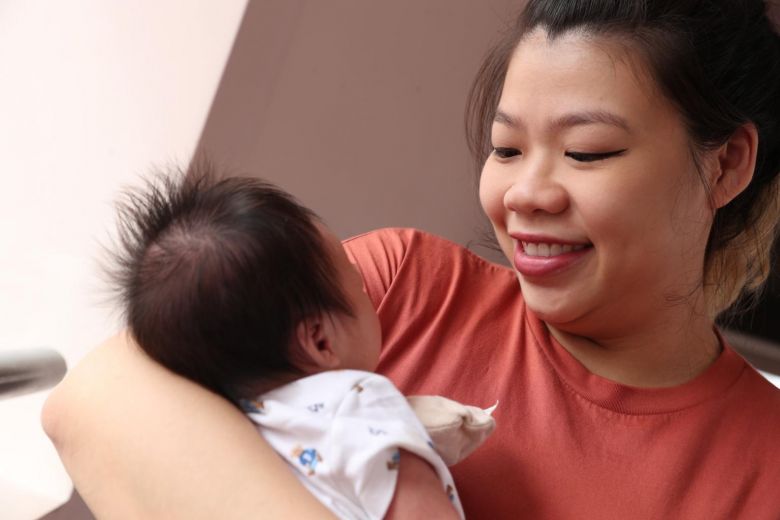Babies born to moms with COVID-19 may have antibodies, but scope of protection is unclear

Mrs Celine Ng-Chan gave birth to her second child and was told by her son’s paediatrician that he has antibodies against the virus. ST PHOTO: TIMOTHY DAVID
SINGAPORE — Although babies of women infected with Covid-19 during their pregnancies have been born with antibodies, it remains unclear if this means the baby is immune to the coronavirus or how long the immunity would last.
Earlier this month, Mrs Celine Ng-Chan, 31, gave birth to her second child and was told by her son’s pediatrician that he has antibodies against the virus.
Mrs Ng-Chan, a private tutor, is one of the few women in Singapore who were infected with Covid-19 during their pregnancies to have given birth here so far.
In such cases, it is not clear if the antibodies were passed from the mother or the baby developed them for him or herself.
In a paper published in October by the journal Emerging Infectious Diseases, of the 11 infants who were born to women with Covid-19 in Wuhan, China, all had detectable levels of IgG antibodies at birth, while five had detectable IgM antibodies.
Article continues after this advertisementIgM is the initial antibody that is produced in response to an infection. However, it is usually not transferred from mother to fetus through the placenta because of its large size.
Article continues after this advertisementOn the other hand, smaller IgG antibodies can be transferred passively from mother to fetus through the placenta, the paper noted. The duration of immunity from the maternal IgG antibodies is unclear.
Checks with the KK Women’s and Children’s Hospital (KKH) found similar conclusions.
Associate Professor Tan Hak Koon, KKH’s chairman at the division of Obstetrics and Gynecology, said that there is evidence of antibodies among infants born to mothers with Covid-19.
“However, it is still unknown whether the presence of these antibodies in a newborn baby confers a degree of protection against Covid-19 infection, much less the duration of protection,” he said.
Meanwhile, both the National University Hospital (NUH) and the KKH are part of a larger ongoing study involving several public hospitals in Singapore to investigate how Covid-19 may potentially impact the well-being and health of pregnant women and their babies.
A NUH spokesman said: “We hope that findings from the study can help inform clinical guidance for the care of affected pregnant women and their infants, and help safeguard their health and well-being.”
Mrs Ng-Chan and her son are part of this study.
She said: ” I’m one of the few mums in Singapore to get Covid-19 during pregnancy.
“I agreed to be part of the study as I believe it is very important, so that we can find out more and fight the virus better.”
For more news about the novel coronavirus click here.
What you need to know about Coronavirus.
For more information on COVID-19, call the DOH Hotline: (02) 86517800 local 1149/1150.
The Inquirer Foundation supports our healthcare frontliners and is still accepting cash donations to be deposited at Banco de Oro (BDO) current account #007960018860 or donate through PayMaya using this link.